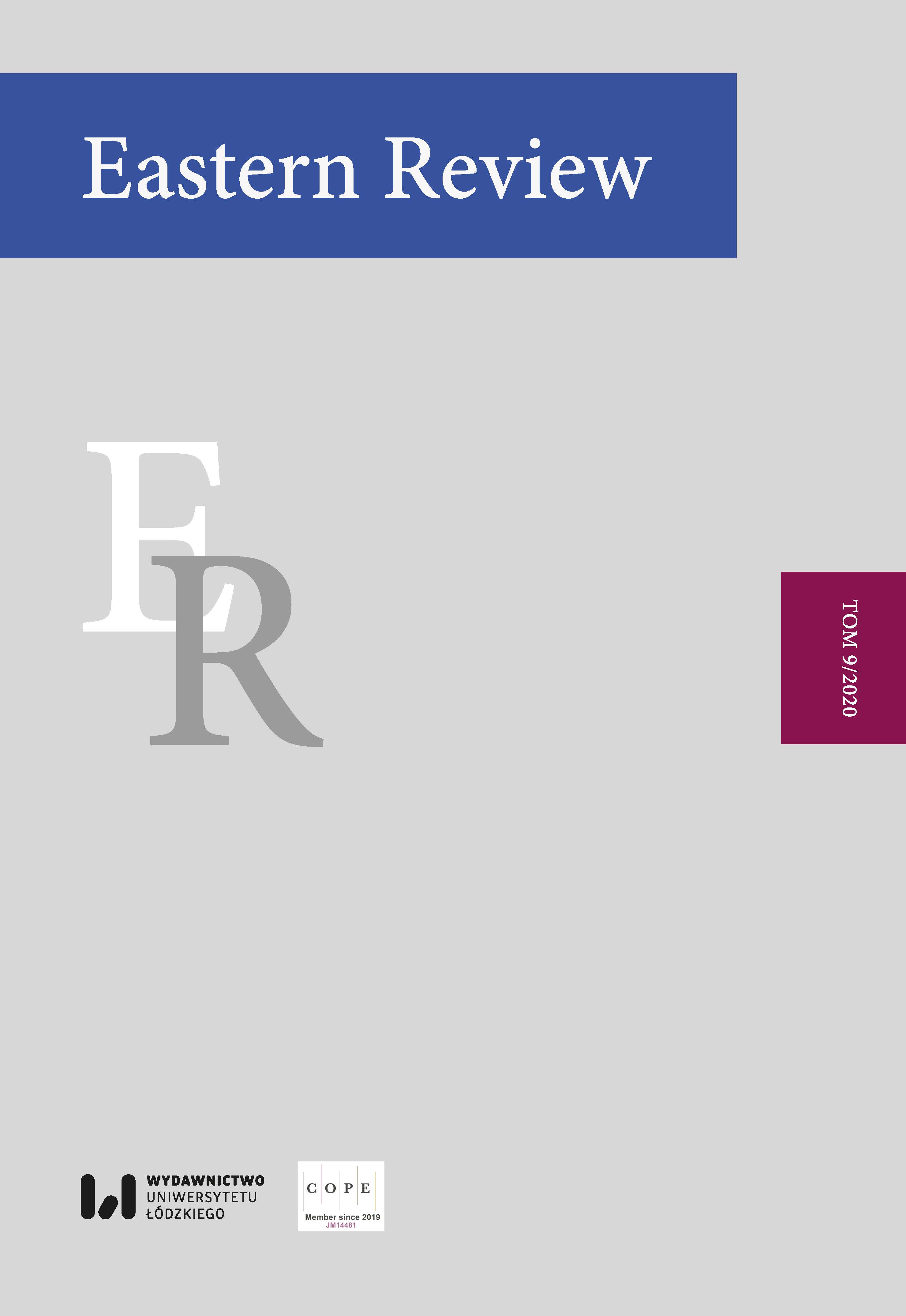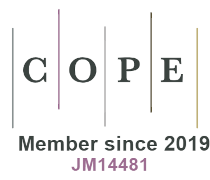“The right to the post-Soviet city”: Analysing communication gaps in the public space
DOI:
https://doi.org/10.18778/1427-9657.09.12Słowa kluczowe:
spatial paradigm, post-Soviet urban space, “The Right to the City”, communication gaps, Stranger concept, local communities, business-government-society interactionAbstrakt
The paper investigates the communication gaps in the public spaces of post-Soviet cities (from the perspective of business-government-society interaction) through the spatial paradigm lens of urban sociology coupled with the perspective of communications studies. The author analyzes the particularities of the spatial organization of post-Soviet cities; describes the main features of their urban public space; and examines their impact on the patterns of social interactions. The paper presents the results of empirical research into the government-business relationship, using the case of Minsk, the capital city of Belarus. The author specifically focuses on the instances of communicative dysfunction (i.e. communication gaps) as the manifestation of social distance, exploring its nature from the perspective of the concept of “a Stranger”. The findings point at a need to supplement the local communities with local public communication channels and content.
Bibliografia
Arendt, H. 2004. The Origins of Totalitarianism. Revised ed. New York: Schocken.
Google Scholar
Bauman, Z. 2000. Liquid Modernity. Cambridge: Polity Press.
Google Scholar
Bourdieu, P. 1984. Distinction: A social critique of the judgment of taste. Trans. R. Nice. Cambridge, MA: Harvard Univ. Press.
Google Scholar
Chernyavskaya, O.S. 2015. Gorod kak kommunikativnoe prostranstvo [The city as communication space], https://www.hse.ru/pubs/share/direct/document/64374784 (accessed 21.01.2016).
Google Scholar
Cheshkova, A.F. 2000. Metodologicheskie podhody k izucheniyu prostranstvennoj segregacii [Methodological approaches to studying spatial segregation]. In: V.V. Vagin (ed.). Rossijskoe gorodskoe prostranstvo: popytka osmysleniya. Moscow: MONF.
Google Scholar
Engel, B. 2007. Public space in the “blue cities” of Russia. In: K. Stanilov (ed.). The Post-Socialist City. Urban Form and Space Transformations in Central and Eastern Europe after Socialism, pp. 285–300.
Google Scholar
DOI: https://doi.org/10.1007/978-1-4020-6053-3_14
Goffman, E. 1959. The Presentation Self in Everyday Life. New York: An Anchor Book.
Google Scholar
Harvey, D. 1996. Justice, Nature & The Geography of Difference. New York: Blackwell Publishing.
Google Scholar
Harvey, D. 2003. The right to the city. International Journal of Urban and Regional Research 27(4), pp. 939–941.
Google Scholar
Hatherley, O. 2016. Soviet squares: how public space is disappearing in post-communist cities. The Guardian. http://www.theguardian.com/cities/2016/apr/21/soviet-squares-public-space-post-communist-cities?CMP=share_btn_tw (accessed 28.05.2016).
Google Scholar
Jacobs, J. 1993. The Death and Life of Great American Cities. New York: Random House.
Google Scholar
Krasnopolskaya, I.I., Solodova G.S. 2012. Vospriyatie chuzhaka gruppoj v sociologii G. Zimmelya [Perception of the stranger by a group in sociology of Simmel]. Sociologicheskij zhurnal 4, pp. 24–35.
Google Scholar
Lebedeva, E.V. 2017. Public space in post-soviet cities: sociability and «crisis of publicity». The Journal of Sociology and Social Anthropology XX/1(98), pp. 74–92.
Google Scholar
DOI: https://doi.org/10.31119/jssa.2017.20.1.5
Lefebvre, H. 1974. La production de l’espace. [The Production of Space]. Paris: Anthropos. Translation and Précis (in French).
Google Scholar
DOI: https://doi.org/10.3406/homso.1974.1855
Lofland, L. 1985. A World of Strangers: Order and Action in Urban Public Space. Paperback. Waveland Pr. Inc.
Google Scholar
Lofland, L. 1998. The Public Realm: Exploring the City’s Quintessential Territory (Communication and Social Order). New York: Aldine de Gruyter.
Google Scholar
Mills, C.W. 1956. The Power Elite. Oxford: Oxford University Press.
Google Scholar
Mitchell, D. 2003. The Right to the City: Social Justice and the Fight for Public Space. New York, London: Guilford Press.
Google Scholar
North, D.C. 1955. Location Theory and Regional Economic Growth. Journal of Political Economy 63(3), pp. 243–258.
Google Scholar
Oldenburg, R. 1999. The Great Good Place. Cafés, Coffee Shops, Bookstores, Bars, Hair Salons and Other Hangouts at the Heart of a Community. New York: Marlowe & Company.
Google Scholar
Pachenkov, O. 2012. Publichnoe prostranstvo goroda pered licom vyzovov sovremennosti: mobilnosti “zlou potreblenie publichnostyu” [The urban public space in the face of modern challenges: mobility and ‘the abuse of personal publicity”]. Novoe literaturnoe obozrenie 117, http://www.nlobooks.ru/node/2638#sthash.ixC7rkWP.dpuf (accessed 21.01.2016).
Google Scholar
Park, R.E. 1952. Human Communities: the City and Human Ecology Glencoe, Ill: The Free Press.
Google Scholar
Park, R., Burgess, E., McKenzie, R. 1984. The City. Chicago: University of Chicago Press.
Google Scholar
Radaev, V.V. 1998. Formirovanie novyh rossijskih rynkov: tranzakcionnye izderzhki, formy kontrolya I delovayaehtika [Creating new Russian markets: transaction costs, regulation and business ethics]. Moscow: Centr politicheskih tekhnologij.
Google Scholar
Sartori, G. 1987. The Theory of Democracy Revisited. Part One: The Contemporary Debate. Vol. 1. Chatham House Publishers, New Jersey.
Google Scholar
Schumpeter J.A. 1991. The economics and sociology of capitalism. Princeton, New Jersey: Princeton University Press.
Google Scholar
Schwartzenberg, R.-G. 1998. Sociologie politique. 5ed. Paris: L.G.D.J.
Google Scholar
Sennett, R. 2002. The Fall of Public Man. London: Penguin Books.
Google Scholar
Simmel, G. 1976. “The Stranger”. The Sociology of Georg Simmel’. New York: Free Press.
Google Scholar
Shtejnberg, I. et al. 2009. Kachestvennyemetody. Polevye sociologicheskie issledovaniya [Qualitative methods: sociological field studies]. St Petersburg: Aletejya.
Google Scholar
Smith, A. 1977. An Inquiry into the Nature and Causes of the Wealth of Nations. Chicago: University of Chicago Press.
Google Scholar
DOI: https://doi.org/10.7208/chicago/9780226763750.001.0001
Soja, E. 2011. Postmodern Geographies: The Reassertion of Space in Critical Social Theory (Radical Thinkers). New York: Verso.
Google Scholar
Sokolova, G.N., Ageeva, L.A. 1994. Ekonomicheskij obraz myshleniya: realnost i perspektivy [Economic thinking: reality and future prospects]. Minsk: Nauka itekhnika.
Google Scholar
The Public Affairs Council (What is public affairs, 2013) URL, http://pac.org/faq#WhatPA (accessed 10.10.2016).
Google Scholar
Titarenko, L.G. 2009. Gorodskoe razvitie na postsovetskom prostranstve: teoreticheskie modeli I realnost [Urban development in the post-Soviet space: theoretical models and reality]. In: J. Terborn (ed.). Postsovetskie stolicy: Minsk. Vilnyus. Baku. Minsk: Izd. centr BGU, pp. 23–40.
Google Scholar
Titarenko L.G. 2015. Tipy ekologicheskogo povedeniya: Homo Ecologus vs. Homo onsumer [Types of environmental behavior]. Sociologicheskij al’manah 6, pp. 105–115.
Google Scholar
Veblen, T. 2007. The Theory of the Leisure Class (Oxford World’s Classics). Oxford: Oxford University Press. Reissue edition.
Google Scholar
Weber, M. 1978. Economy and Society: An outline of interpretive sociology. Berkeley: University California Press.
Google Scholar
Wirth, L. 1964. On Cities and Social Life: Selected Papers. A.J. Reiss (ed.), Chicago: University of Chicago Press.
Google Scholar
Zhelnina, A. 2014. “Tusovka”, kreativnost’ ipravona gorod: gorodskoe publichnoe prostranstvo Rossii do iposleprotestnojvolny 2011–2012 godov. [The get-together, creativity and the right to the city: the urban public space in Russia before and after the protests of 2011–2012]. Stasis 2(1), pp. 260–295.
Google Scholar
Zhukova, I.N., Lebed’ko, M.G., Proshinoj, Z.G., Józefowicz, N.G. 2013. Slovar’ terminovmezh kul’turnoj kommunikacii [Dictionary of cross-cultural communication terms]. Moscow: FLINTA, Moscow: Nauka.
Google Scholar
Zukerman, E. 2013. Rewire: Digital Cosmopolitans in the Age of Connection. New York, London: Norton and Company.
Google Scholar
Zukin, S. 1995. The cultures of cities. Oxford: Blackwell.
Google Scholar
Pobrania
Opublikowane
Jak cytować
Numer
Dział
Licencja

Utwór dostępny jest na licencji Creative Commons Uznanie autorstwa – Użycie niekomercyjne – Bez utworów zależnych 4.0 Międzynarodowe.










